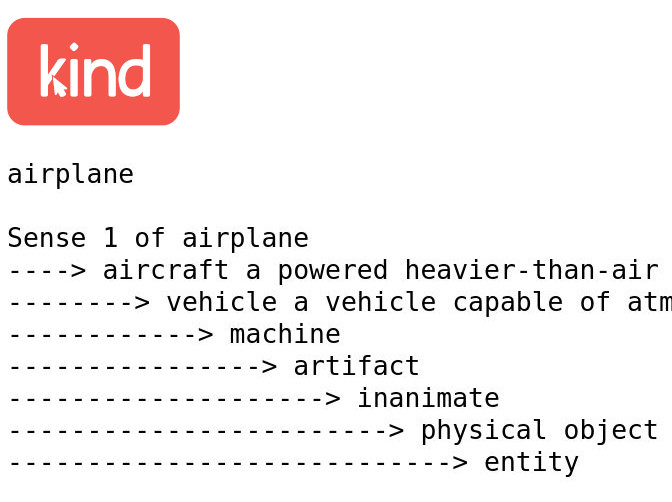February 9, 2026New version of Termout.org
|
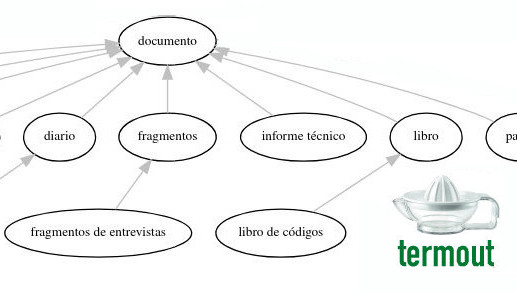
|
This version of Termout is faster and more accurate: http://termout.org
But... what is Termout, dare you ask?
Termout is a software that helps you develop terminological projects,
and you may be interested if you are a terminologist, translator, interpreter
or if you happen to write or deal with technical papers often.
The basic functions of Termout are:
- to process a specialized corpus in English and Spanish
- extract terms
- classify them in semantic categories
- extract information from the corpus
- extract equivalents in the other language
- obtain synonyms (term variants)
- export-import term databases (CSV, HTML, TBX)
And there is even more!
A recent publication describes some of the new functions:
Nazar, R. (2026). Semi-Automatic Creation of Terminological Databases.
Terminologie & Ontologie :
Théories et Applications. Presses universitaires Savoie Mont Blanc, 117-134
(
PDF
).
A little disclaimer: The code is very new and it may still feel
a little bit unstable. Please be patient while we finish polishing it.
|
8 de enero, 2026Javier Obreque defiende su Proyecto de Tesis
|
Comenzamos el año con una buena noticia: nuestro compañero y colega Javier Obreque, miembro del Grupo Tecling desde
hace ya más de una década, acaba de defender su proyecto de tesis doctoral en el Instituto de Literatura
y Ciencias del Lenguaje de la Pontificia Universidad Católica de Valparaíso.
El título del trabajo es ``Mecanismos lingüísticos de la subjetividad en el discurso científico:
análisis descriptivo desde los resúmenes de proyectos de investigación concursable FONDECYT Regular''.
El proyecto era dirigido inicialmente por Rogelio Nazar, pero desde su renuncia a la PUCV en setiembre de 2025,
la dirección quedó a cargo de los profesores Pascal Matzler y Hernán Robledo.
El proyecto de tesis doctoral de Javier
es una investigación con un diseño cualitativo-cuantitativo que
pretende desentrañar el funcionamiento
de las marcas de subjetividad en el discurso científico, y como tal es una
contribución al modelamiento descriptivo de géneros discursivos.
En contraste con la creencia socialmente compartida de que
el discurso científico, como parte del carácter del
conocimiento científico y sus formas de comunicación, es objetivo y neutro, lo que
se comprueba en realidad es que en la producción científica y académica
se encuentran diversos mecanismos de expresión de la subjetividad, como
la deixis, la modalización y la despersonalización, que cumplen un propósito
metadiscursivo estratégico vinculado con las estructuras argumentativas
que buscan producir un efecto en el lector.
Por ello, el objetivo del estudio es describir, a partir de sus marcas
lingüísticas empíricas, la manifestación de
subjetividad en los resúmenes de propuestas de proyectos de investigación para obtener
financiamiento en concursos públicos y competitivos en Chile, concretamente en los
resúmenes de Proyectos Fondecyt.
Nunca antes se ha intentado un análisis discursivo
de los proyectos Fondecyt, y no hay duda de que los resultados serán de gran relevancia para comprender mejor
tanto la forma en que se financia la investigación en Chile y los mecanismos retóricos asociados,
como el funcionamiento del discurso científico en general. Estaremos por eso muy atentos
cómo se desarrolla este trabajo. Desde aquí, nuestras felicitaciones a Javier!
PIE DE FOTO: Javier aparece en el centro, con su camisa blanca, flanqueado por los miembros
de la comisión evaluadora (Nina Crespo y Daniela Ibarra) y sus profesores guía (Hernán Robledo y
Pascal Matzler, a su izquierda, y Rogelio Nazar, a su derecha, que justo pasaba por ahí).
|
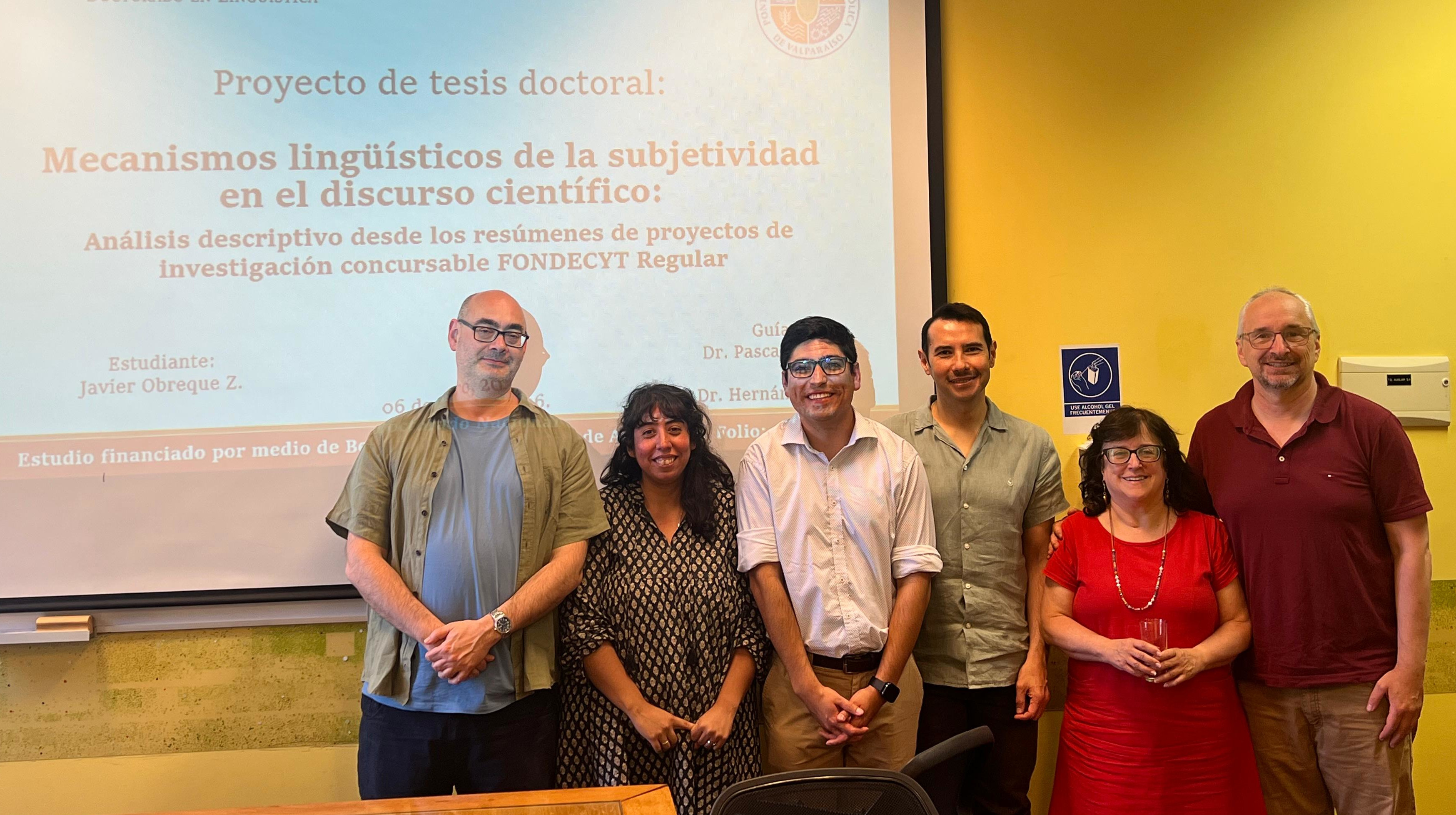
|
23 de diciembre, 2025Hernán Robledo se adjudica Proyecto Fondecyt
|
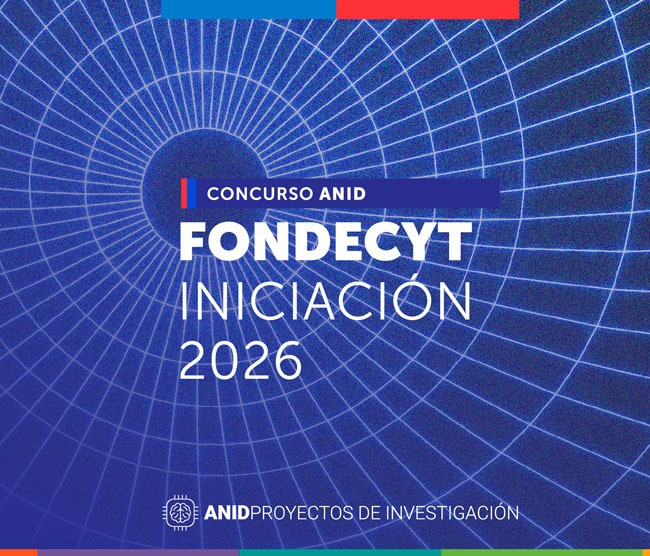
|
Hernán Robledo, miembro de la vieja guardia del Grupo Tecling, acaba de adjudicarse el
Proyecto Fondecyt Iniciación N°11260185, titulado “Conectores y operadores discursivos en español digital: análisis semiautomático de su variación formal y procesos de fijación en redes sociales”.
El proyecto estudiará el uso de conectores y operadores discursivos en interacciones escritas de plataformas como YouTube y Twitter/X, con el objetivo de sistematizar su variación formal y funcional, así como describir procesos de fijación lingüística en curso en el español contemporáneo. Mediante una metodología mixta que combina análisis lingüístico cualitativo y herramientas de procesamiento del lenguaje natural, la investigación permitirá identificar expresiones emergentes, modelar patrones discursivos y desarrollar un repertorio digital anotado de acceso abierto, con proyecciones en el estudio del discurso digital, la enseñanza del español y las tecnologías del lenguaje.
Desde aquí felicitamos a nuestro colega, que continúa con una línea de investigación en marcadores
discursivos que a este grupo siempre ha interesado mucho. |
December 12, 2025A talk in Madrid about semantic tagging
|
This week, Irene Renau and Rogelio Nazar delivered a talk at an International Conference in Universidad Autónoma de Madrid. The name of the event was Informatividad en la lingüística teórica y aplicada: conocimiento léxico, sintáctico y pragmático (`Informativity in theoretical and applied linguistics: lexical, syntactic, and pragmatic knowledge'), and it has been organized by Prof. Olga Batiukova and her team. The topic of the talk was semantic tagging in English and Spanish (more details about this research will be available on Tecling’s website soon).
It has been a great experience, and an opportunity for fruitful scientific dialog with Olga and other distinguished researchers such as James Pustejovsky, Inés Fernández-Ordóñez, Larissa Timofeeva, José María García-Miguel and many others. And it is also nice to visit Madrid from time to time!
Many thanks to the organizers for the invitation.
|
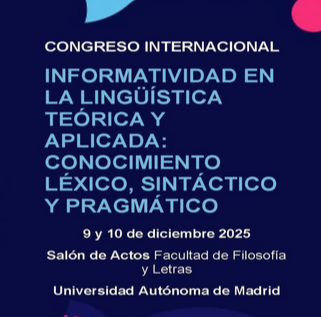
|
October 30, 2025Autogenerated terminological databases
|
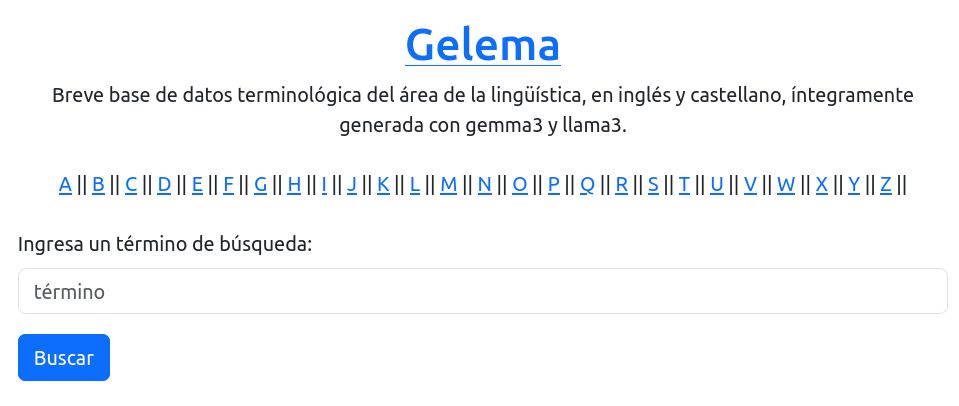
|
Gelema is a small terminology database in the field of linguistics generated entirely with generative artificial intelligence, specifically gemma3 and llama3 LLMs, used locally and programmatically thanks to the ollama.com project.
It is created using a Perl script that controls these models and makes them:
- select linguistic terms from a list of nouns and noun phrases extracted from a corpus
- find their equivalent in the other language
- generate definitions
To reduce the error rate, the script makes the same queries to the models twice in order to compare their results and thus determine the accuracy of the information. It is more like detective work: the testimony of different chatbots and different instances of them must be compared. When they hallucinate, they are more likely to do so in divergent ways, each with their own delusion. When they are right, however, their testimonies are more likely to converge.
This database was generated in less than 24 hours and with zero budget.
In the future, we will complete this database by including more information, more fields, and more entries.
If you want to know more, send an email to rogelio (dot) nazar (you know) gmail (dot) com
Give it a try!
http://www.tecling.com/gelema
|
August 19, 2025We are moving back to Spain
|
After eleven and a half years
and many adventures, Irene Renau and Rogelio Nazar
are moving back to Barcelona, to begin a new stage in their life.
This web site and all associated applications will be offline while the change is taking place. Please be patient. Everything will be back online as soon as possible. We need to change servers and this must happen one software at a time. We will be updating on this development.
We would like to express our gratitude to our employers at Pontificia Universidad Católica de Valparaíso for letting us develop our academic careers, for all the support, and the great moments we had.
|

|
5 de agosto de 2025Tuvo lugar el II Seminario de Invierno en Semántica Léxica y Lexicografía
|
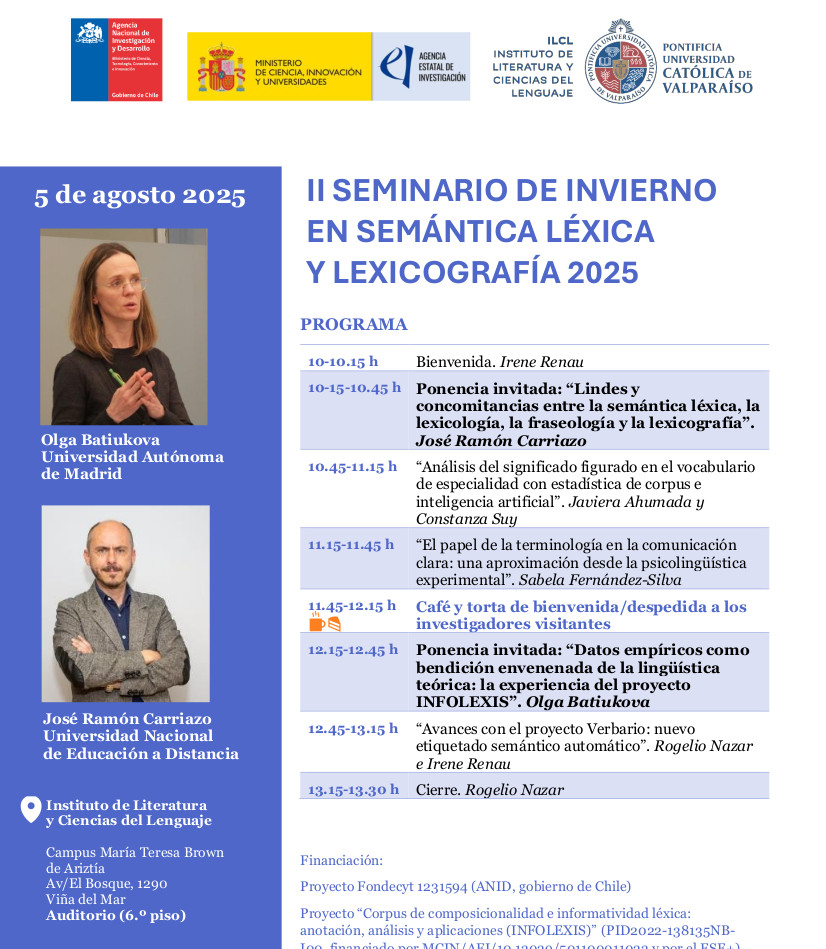
|
Parece que el Instituto de Literatura y Ciencias del Lenguaje (ILCL) de la Pontificia Universidad Católica de Valparaíso (PUCV) se ha convertido en un foro internacional de la lingüística y, en particular, de la lexicología y la lingüística de corpus. Este martes 5 de agosto, en el Auditorio del ILCL, tuvimos unos invitados de lujo en nuestra
nueva edición de los Seminarios de Invierno en Semántica Léxica y Lexicografía
.
Presentó su trabajo José Ramón Carriazo, de la Universidad Nacional de Educación a Distancia (UNED) y Olga Batiukova, de la Universidad Autónoma de Madrid, dos profesores que en este momento coinciden en una estancia de investigación en el ILCL. Además, presentarán Javiera Ahumada y Constanza Suy, dos egresadas del Magíster en Lingüística Aplicada, y Sabela Fernández-Silva, Irene Renau y Rogelio Nazar, profesores de la PUCV.
|
25 de julio de 2025Guillermo Rojo dictó una conferencia en la Pontificia Universidad Católica de Valparaíso
|
El destacado lingüista español Guillermo Rojo,
profesor emérito de la Universidad de Santiago de Compostela, miembro de la Real Academia Española y una de las figuras más importantes de la lingüística española actual, dictó una conferencia para el Doctorado en Lingüística del Instituto de Literatura y Ciencias del Lenguaje de la Pontificia Universidad Católica de Valparaíso, con el título Corpus textuales, diccionarios de frecuencia dinámicos y otras explotaciones.
Aquí el enlace al video de la conferencia:
https://youtu.be/IMlKBlg32V4
Resumen:
Los recursos informáticos, los corpus y la lingüística de corpus han
modificado fuertemente el modo de trabajar en lingüística y han tenido
también un impacto notable en algunos de los recursos y temas más tratados
tradicionalmente. El primero de esos aspectos es el constituido por los
llamados 'diccionarios de frecuencia', un tipo de obra sobre la que se han
acumulado las críticas desde sus orígenes hasta nuestros días. Los
recursos informáticos que tenemos ahora a nuestra disposición permiten
solucionar la mayor parte de los problemas planteados y construir DF que
sirvan realmente a los propósitos con los que son utilizados. Al tiempo,
la posibilidad de obtener datos de corpus textuales formados por cientos
de millones de palabras y seleccionar los resultados en función del origen
de los textos y el tipo al que pertenecen permite arrojar una nueva luz
sobre cuestiones como el tamaño del lemario necesario para desenvolverse
en español o la distribución del léxico en los diferentes países del mundo
hispánico.
|
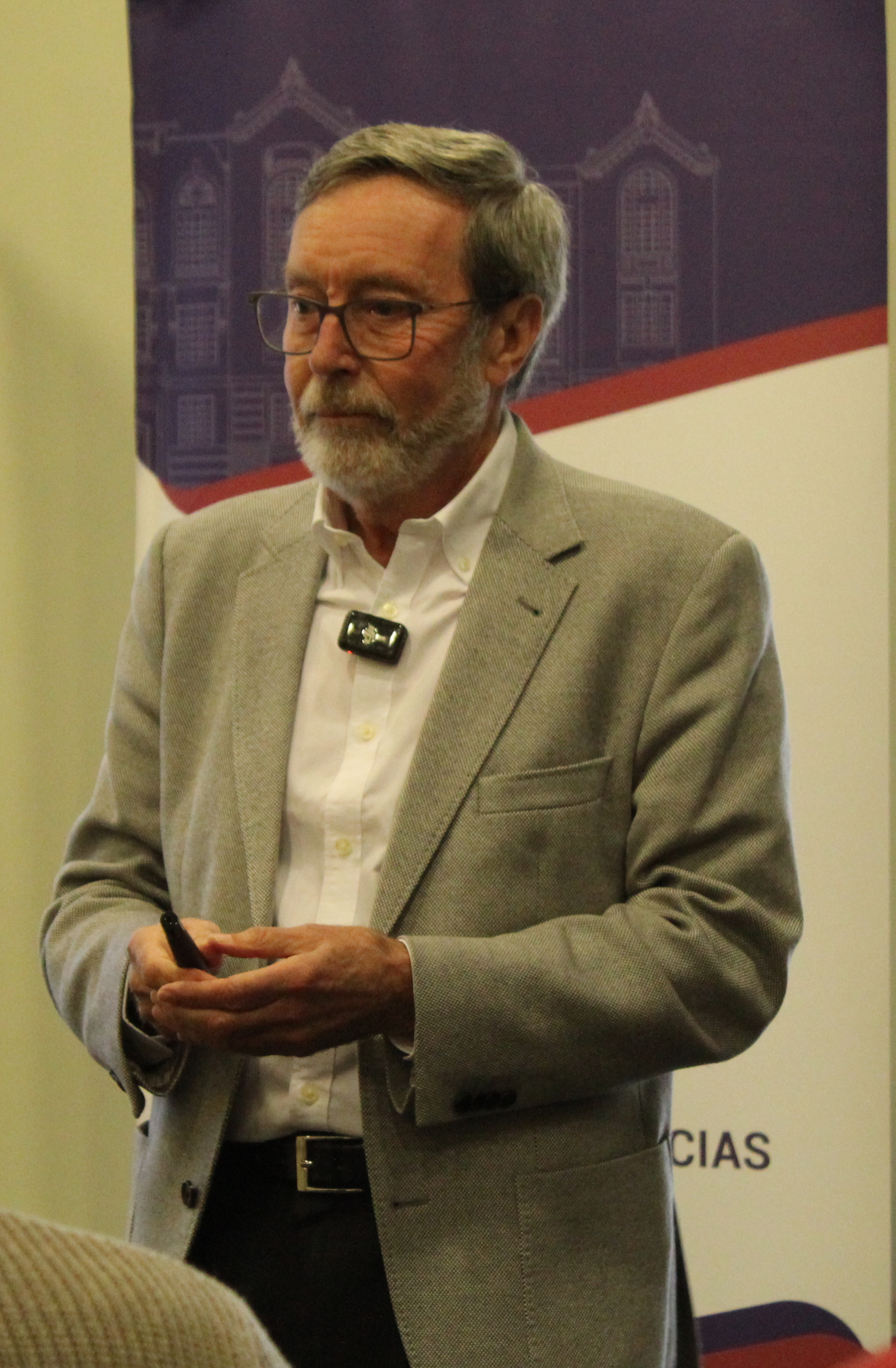
|
23 de julio de 2025Presentamos ponencias en el Congreso de la Asociación Internacional de Hispanistas
|
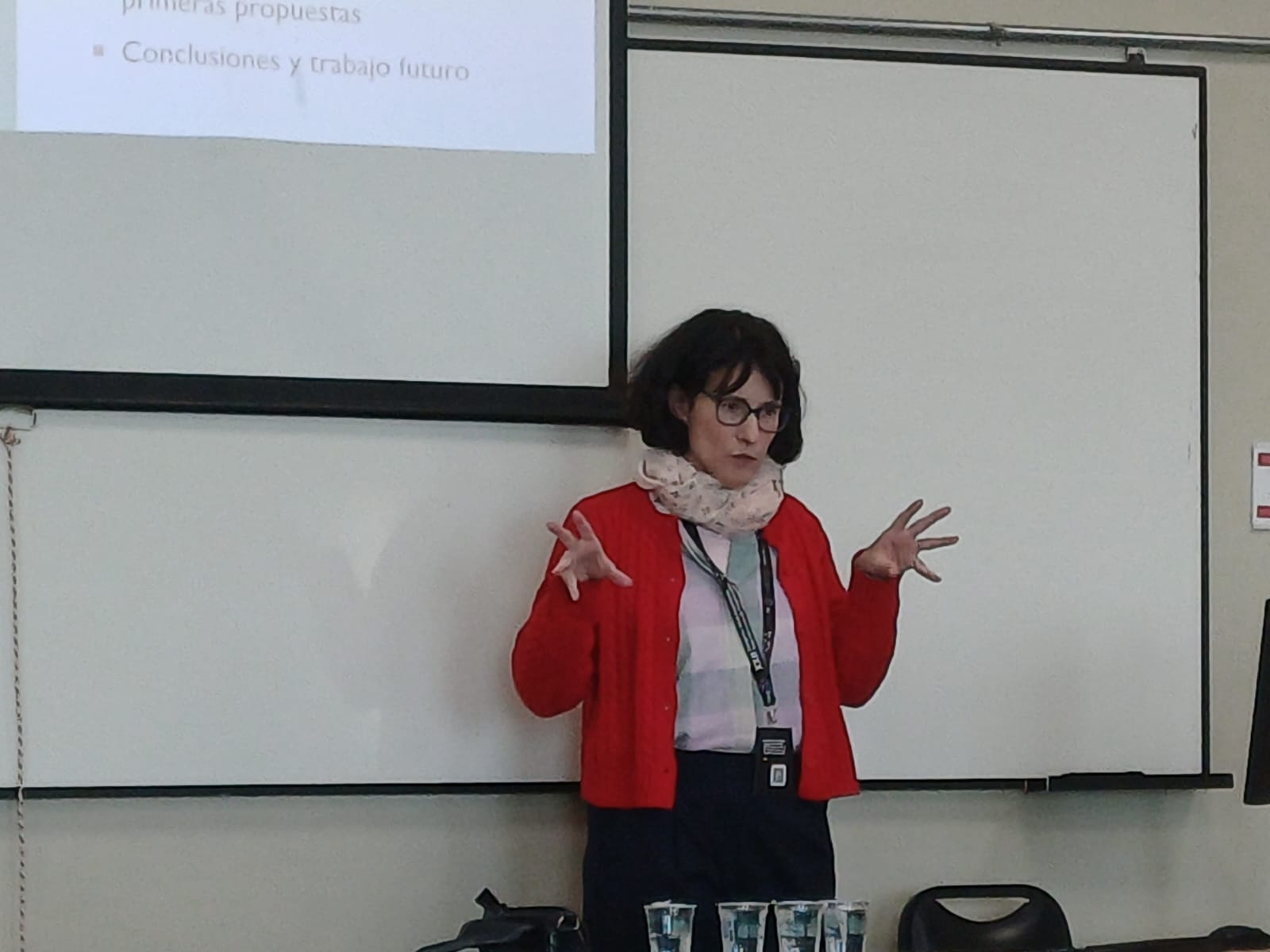
|
Tres investigadores del Grupo Tecling estuvieron presentes en el XXII Congreso de la Asociación Internacional de Hispanistas, realizado en la Universidad de los Andes, Santiago de Chile, donde compartieron avances de investigación. El
Dr. Hernán Robledo expuso “Variación formal y funcional de los marcadores del discurso en interacciones digitales: el caso de los comentarios de YouTube en español”. A partir de 1.048 comentarios en videos de noticias chilenos, identificó y clasificó 1.191 ocurrencias de conectores y operadores discursivos, proponiendo un sistema de paradigmas formal-funcionales. Sus hallazgos muestran la alta productividad de conectores interactivos y operadores modales y argumentativos, propios del discurso digital, que evidencian que la variación en estos entornos es dinámica y expresiva, superando la rigidez de la escritura formal.
El Dr. Rogelio Nazar presentó “Análisis de los patrones léxicos parafrásticos del discurso especializado en castellano”. Con un corpus de 3.600 artículos y cerca de 30 millones de palabras, identificó patrones parafrásticos frecuentes y desarrolló un prototipo para su detección automática. Los resultados confirman que la paráfrasis puede predecir el carácter especializado de una unidad léxica, lo que abre nuevas posibilidades para la extracción automática de terminología y el análisis del discurso científico.
Finalmente, la Dra. Irene Renau expuso “Las metáforas en los diccionarios: hacia una propuesta de representación en Verbario”, donde analiza la metáfora en diccionarios generales del español y propone una microestructura innovadora para Verbario, diccionario de verbos basado en patrones sintáctico-semánticos. En el marco del proyecto Fondecyt Regular 1231594, integra análisis semiautomatizados para mapear metáforas, dominios y redes verbales, introduciendo cambios estructurales en su organización y microestructura
|
3 de julio de 2025Ayer tuvimos la presentación de Imma López-Solà
|
El miércoles 2 de julio de 2025 tuvo lugar esta charla de la profesora Imma López-Solà en el Doctorado en Lingüística de la Pontificia Universidad Católica de Valparaíso. El título de la exposición es 'Lecturas (mal) graduadas: Inconsistencias en la progresión de la complejidad lingüística en materiales de lectura para aprender español', y en ella, Imma nos habló de su investigación en aprendizaje de español como segunda lengua, que forma parte de su tesis doctoral de la de la Universitat Pompeu Fabra, de Barcelona.
El video de la exposición completa está disponible en este enlace:
https://youtu.be/FzvphPDO3sw
El trabajo fue recientemente publicado en forma de artículo en la revista Applied Linguistics:
https://doi.org/10.1093/applin/amaf017
Aquí un twit de la autora en el que describe esta investigación:
https://x.com/immakoolaid/status/1925255695248572726
El siguiente es un resumen de esta exposición:
Lecturas (mal) graduadas: Inconsistencias en la progresión de la complejidad lingüística en materiales de lectura para aprender español
El uso de lecturas graduadas (LGs) en la enseñanza de lenguas extranjeras es una práctica habitual, ya que permiten ofrecer input contextualizado adaptado al nivel de cada estudiante. Sin embargo y pese a que su elaboración se basa en criterios poco sistematizados (Claridge, 2012; Nation y Waring, 2020), se da por sentado que están bien calibradas y se utilizan, entre otras cosas, para desarrollar recursos y sistemas de aprendizaje de lenguas asistido por ordenador (ALAO) (p. ej., Dürlich y François, 2018). En este estudio analizamos la progresión de la complejidad lingüística en un conjunto representativo de LGs en español y, dado que su disponibilidad es limitada, evaluamos hasta qué punto determinadas obras literarias (OLs) dirigidas a hablantes nativos de distintas edades presentan una graduación comparable que permita su aprovechamiento didáctico. Con este objetivo, combinamos técnicas de procesamiento del lenguaje natural y aprendizaje automático del siguiente modo: a partir de un corpus compuesto por 50 LGs, 50 OLs y 8585 unidades léxicas graduadas, calculamos 40 medidas de complejidad léxica y morfosintáctica, y entrenamos modelos de bosque aleatorio para analizar la variación de la complejidad entre niveles. Posteriormente, realizamos tests de permutación con las cuatro medidas más informativas para comparar la complejidad entre subcorpus y también con un corpus de referencia de español general. Por último, empleamos técnicas distribucionales para estudiar la progresión del vocabulario más allá de cualquier lista predefinida de unidades léxicas graduadas. Los resultados evidencian que la complejidad lingüística no progresa de forma sistemática en ninguno de los dos tipos de lectura, siendo especialmente inconsistente en las LGs de nivel avanzado. Asimismo, se observa una diferencia sustancial entre los niveles iniciales de las LGs y las OLs, pero también una convergencia progresiva en los niveles intermedios y avanzados. Estos hallazgos tienen implicaciones relevantes tanto para el diseño de materiales educativos adecuados al nivel del estudiantado como para el desarrollo de aplicaciones de ALAO, que podrían beneficiarse del uso de OLs para ampliar sus datos de entrenamiento y generar input graduado. Recomendamos, en consecuencia, una mayor sistematización en la elaboración de las LGs, complementando el proceso cualitativo de escritura con análisis cuantitativos que optimicen la calibración de la complejidad lingüística en este tipo de materiales didácticos.
Referencias
Claridge, G. (2012). Graded readers: How publishers make the grade. Reading in a Foreign Language 24(1): 106–119.
Dürlich, L., y François, T. (2018). EFLLex: A graded lexical resource for learners of English as a foreign language. Proceedings of the 11th International Conference on Language Resources and Evaluation (LREC 2018), pp. 873–879. European Language Resources Association.
Nation, P. y Waring, R. (2020). Teaching extensive reading in another language. Routledge.
|
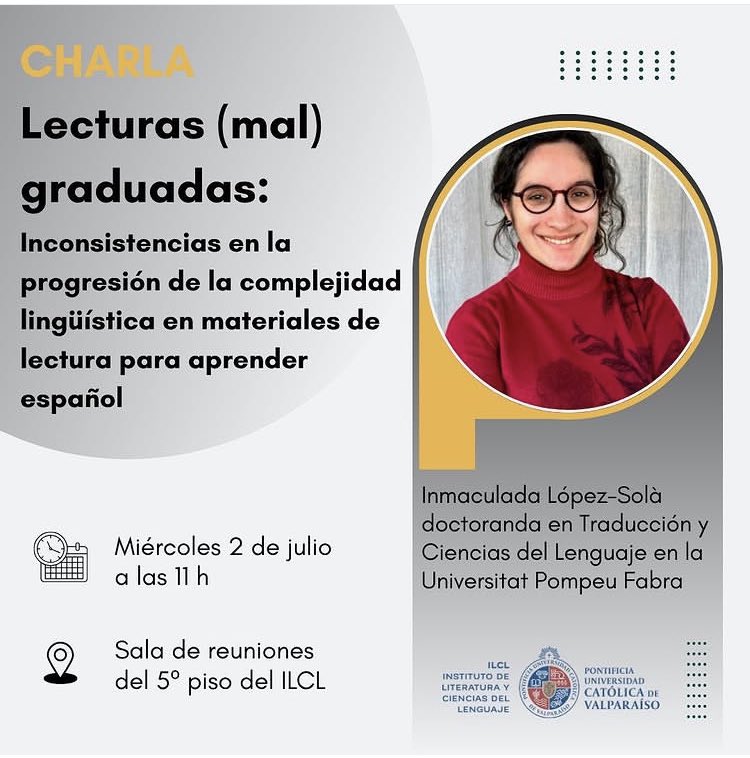
|
10 de junio de 2025Olga Batiukova dictó una clase en el Doctorado en Lingüística
|
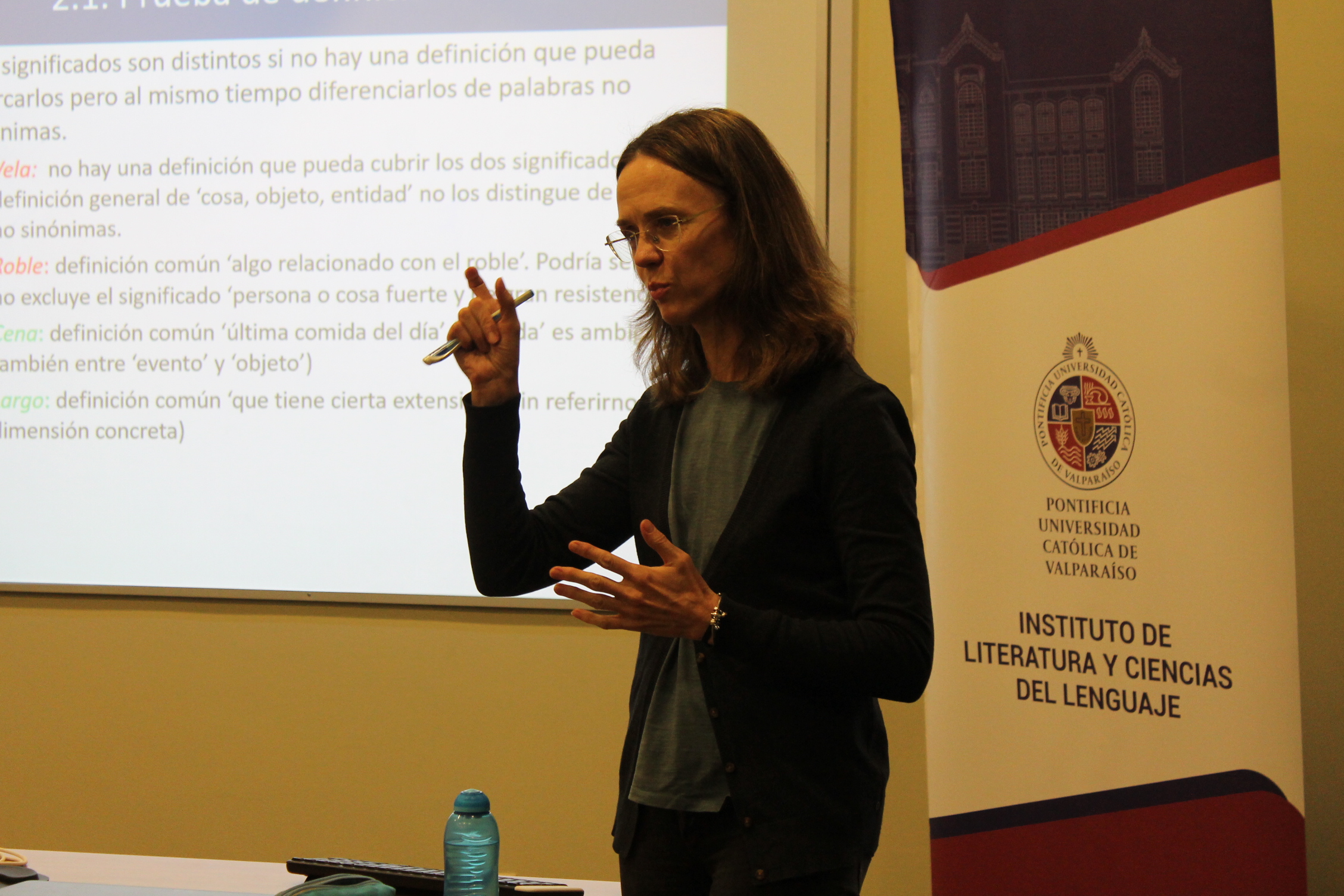
|
Hoy martes 10 de junio tuvimos una clase abierta, organizada por el Doctorado en Lingüística de la PUCV, en el marco de la asignatura “Estudios Gramaticales: de la palabra al texto”. La expositora, en esta oportunidad, fue la distinguida profesora Dra. Olga Batiukova, de la Universidad Autónoma de Madrid. Olga es una especialista de renombre internacional en semántica léxica, y para nosotros es un gran honor que haya querido venir a visitarnos.
En esta oportunidad, desarrolló el tema de la polisemia léxica. En particular, se centró en el tema de la polisemia regular, que ha trabajado desde la teoría del lexicón generativo, junto con James Pustejovsky, creador de esta línea teórica y coautor de esta profesora en uno de sus libros más recientes. Desde esta teoría, la investigadora ha propuesto una explicación para la diferencia entre polisemia y homonimia. Además, desarrolló, entre otros temas, el fenómeno de la copredicación, en la que coexisten, en una misma palabra y en un mismo contexto, más de un significado. Explicó, también, una de sus últimas investigaciones, publicada en la Revista Signos, en la que aborda la relación entre la polisemia regular y la morfología de la derivación denominal en español.
|
June 1st, 2025We have a new version of Kind, the taxonomy project
24 de mayo, 2025Hernán Robledo presenta ponencia en Congreso ArDis
|
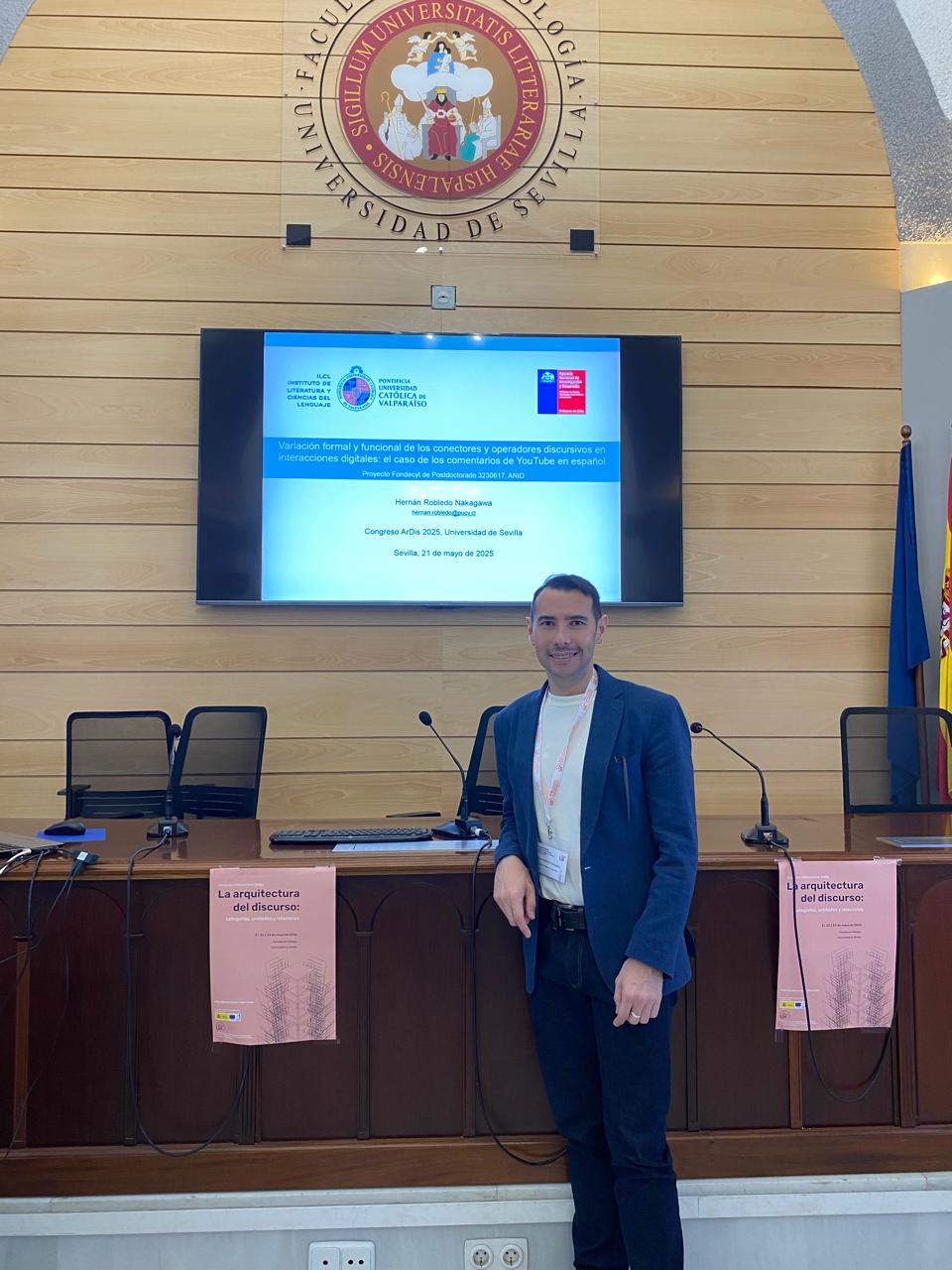
|
Nuestro colega y colaborador Hernán Robledo presentó una ponencia en el Congreso ArDis 2025 (La arquitectura del discurso: categorías, unidades y relaciones). Su ponencia se titula ``Variación formal y funcional de los conectores y operadores discursivos en interacciones digitales: el caso de los comentarios de YouTube en español'' y consite en una propuesta de metodología híbrida para sistematizar la variación formal y funcional de los marcadores del discurso en español. Esta investigación se enmarca en su proyecto Fondecyt de Postdoctorado N°3230617, titulado ``Variación formal de marcadores del discurso en español: extracción y clasificación de variantes mediante técnicas semiautomáticas de explotación de corpus'', patrocinado por la Pontificia Universidad Católica de Valparaíso (PUCV) y la profesora Irene Renau.
En su exposición, Hernán presentó los primeros hallazgos del análisis de un corpus de interacciones escritas extraídas de YouTube aplicando la distinción teórica entre conectores y operadores discursivos propuesta por Catalina Fuentes Rodríguez, directora del Grupo APL de la Universidad de Sevilla. Señaló además que, dado el caracter altamente interactivo, expresivo, argumentativo y dinámico de los intercambios en esta plataforma, es posible observar tanto las formas plenamente gramaticalizadas como aquellas construcciones emergentes o parcialmente fijadas, que aún presentan rasgos de flexibilidad estructural y semántica.
Felicitamos a nuestro amigo y nos enorgullece que lleve adelante un trabajo investigativo de calidad.
|
29 de abril, 2025Imma López vino a hacer su estancia de investigación predoctoral
|
Tenemos el gran honor de recibir a
Inmaculada López-Solá, profesora y doctoranda del Departamento de Traducción y Ciencias del Lenguaje de la Universitat Pompeu Fabra,
quien ha decidido venir a Viña del Mar a realizar su estancia de investigación predoctoral con el Grupo Tecling.
Imma trabaja en el campo del Español como Lengua Extranjera aplicando sus conocimientos de lingüística computacional y lexicografía,
y se interesa por el desarrollo de sistemas que sean capaces de detectar los errores de vocabulario, ofrecer retroalimentación y generar actividades de seguimiento personalizada para los estudiantes.
En el marco de su visita, participará de diferentes actividades, entre las que se incluye la presentación de una charla en el
Doctorado en Lingüística de la Pontificia Universidad Católica de Valparaíso para dar a conocer los resultados de su investigación doctoral.
Pronto estaremos difundiendo por diferentes medios la fecha, hora y lugar de este evento.
Por ahora, le damos la bienvenida y estamos encantados con su presencia.
|

|
11 de abril, 2025Tuvimos una conferencia de Cecilio Garriga
|

|
Hoy hemos tenido la Ceremonia de Inauguración del Año Académico del Doctorado en Lingüística de la Pontificia Universidad Católica de Valparaíso, y nuestro conferencista invitado fue Cecilio Garriga Escribano, quien nos presentó la charla titulada 'Los diccionarios, entre la tradición y la inteligencia artificial'.
El Prof. Garriga es catedrático de la Universidad Autónoma de Barcelona y director del Grupo de Lexicografía y Diacronía, del Departamento de Filología Española.
Sus líneas de investigación son la lexicografía, la historia de la lengua, los lenguajes de especialidad, la morfología, y la enseñanza de la lengua.
Para quienes no pudieron asistir, aquí está el enlace a la grabación en video del evento.
| |
Server Status
Local time: Wed Mar 4 05:07:59 2026
| Parameter | Value | Comments |
|---|
| Temperature | 38 C |
Bearable |
|---|
| Memory left | 89 % |
Enough |
|---|
| CPU usage | 0.0 % |
Ok |
|---|
| Storage left | 65 % |
Enough |
|---|
| Users right now | 2 | Not many |
|---|
Tools & demos
We have implemented different types of applications and most of them can be tested online. Take a look.
+ Bifid: a parallel corpus aligner
+ Compare: a simple script to compare two lists of words
+ Cryptoman: a script to generate cryptograms
+ Dismark: a multilingual taxonomy of discourse markers
+ Dsele: a model dictionary for ELE learners
+ Estilector: computer assisted writing for Spanish
+ GeNom: a program to detect the gender of proper nouns
+ Jaguar: a tool for statistic corpus analysis
+ Kind: a lexical taxonomy induction algorithm
+ Kwico: a concordancer for big corpora
+ Lealem: a reading pacer for parallel German-Spanish texts
+ Leafran: a reading pacer for parallel French-Spanish texts
+ Linguini: a language detector
+ Neven: a program to detect eventive nouns
+ POL: named entity recognition and classification
+ Poppins: a supervised text classifier
+ Porcus: an interface for various taggers and parsers for Spanish
+ pullPOS: a project for the detection of plurals in Spanish
+ Punkt: punktuation of discourse markers in Spanish
+ Randall: a list randomizer
+ Readeutsch: a reading pacer for parallel German-English texts
+ Regex: a Perl script for regular expressions
+ Sapo: a program to detect similarities between documents
+ Sicam: a program to analyze Spanish poetry
+ Termout: a terminology extraction system
+ TEXT·A·GRAM: a program to analyze Spanish texts
+ Verbario: corpus pattern analysis in Spanish
|












